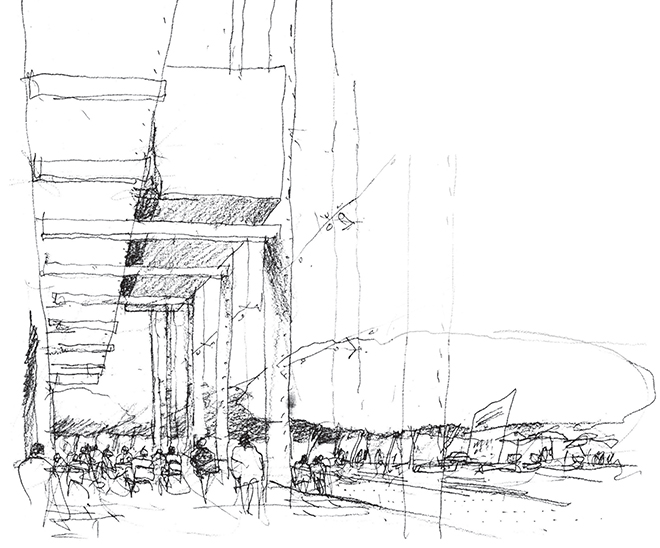Semester 1 2017 Studio 13
JUST Architecture
Wojciech Pluta, Shervin Jaderzadeh and Jessica Zhang
Studio Outline:
“The idea that courtrooms should have distinctive architecture has been remarkably persistent in almost every culture since at least the days of George Edmund Street’s Gothic court complex in London. It is a way to celebrate the state, as Mussolini’s architects did in Milan and Naples in the fascist period (though without putting much store in an independent judiciary). Le Corbusier acknowledged the central position of the law when he laid out the master plan for Chandigarh. More recently, the French court system has employed both Jean Nouvel and Richard Rogers, to reflect contemporary France…
We may want to put ourselves in a special frame of mind about the building in which justice is seen to be done, but once inside we become squeamish about symbolising hierarchy at close quarters. Too many architectural tricks threaten to turn a judge into a priest celebrating a ritual, and we get uncomfortable. So much of the legal process now is carefully stage-managed to remove the intimidating aspects of justice for ordinary citizens, and courtroom interiors are expected to aid in the demystification of the system. Much of commercial law, meanwhile, is conducted more in the manner of an academic seminar than an out-take from 12 Angry Men.” - Deyan Sudjic
Denton Corker Marshall’s Manchester Civil Justice Centre has been sensitive to these trends, creating a building which symbolises the open and accessible character of the civil justice system - a public building rather than a secret place inhabited by only defendants and lawyers. This studio will aim to revalidate these ideas in the context of our current political and security climate. Students are invited to reflect upon the concept of justice and its place within society. What values do we associate with justice and how might these differ across cultures? How might these values inform a distinctive architectural outcome for the court that not only symbolises justice but helps create a productive environment for all?
Learning Outcomes:
Students will be asked to design a modern court complex for a city/ culture of their choice, commencing with a critical analysis of an existing/ historic court building. Weekly research + design tasks will guide students in developing a clear, well thought-out architectural proposition.
ST1/13 Monday 6pm - 9pm, Denton Corker Marshall, Collins Street
ST2/13 Thursday 6pm - 9pm, Denton Corker Marshall, Collins Street